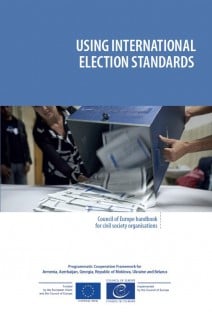
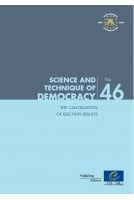


Civil society organisations – watchdogs for free and fair elections!
This handbook, drafted in collaboration with civil society organisations from the countries of the Eastern Partnership, is a response to the recommendation set out in the 2015 report by the Secretary General of the Council of Europe entitled State of democracy, human rights and the rule of law in Europe. Its purpose is to improve the quality of domestic observation of electoral processes in the member states and to serve as a reference for domestic observers, primarily for core team members.
At the same time, it may serve as a training tool for long-term and short-term observers and other electoral stakeholders who wish to familiarise themselves with international election standards (government officials, electoral administration, party representatives, judges, lawyers).
The Council of Europe is convinced that this handbook will further promote the uniform application of Europe’s electoral heritage and of other international standards in its member states and beyond.
FOREWORD
ACKNOWLEDGEMENTS
INTRODUCTION
Elections – Cornerstone of democracy
Civil society organisations – Watchdogs for free and fair elections
Domestic election observers contributing to sustainable democracies
The handbook
PART 1 – ELECTION STANDARDS AND GENERAL PRINCIPLES
1. Definition
2. General principles
3. General conditions
4. Enforcement
5. The approach of civil society organisations
PART 2 – APPLICATION AND GOOD PRACTICES
1. Electoral system
2. Electoral administration
3. Voter education
4. Voter registration
5. Candidate registration
6. Election campaign
7. Media coverage of the elections
8. Voting – Types of voting
9. Counting and results management
10. Electoral complaints
11. Election observation
APPENDICES
Télécharger un extrait (1000)

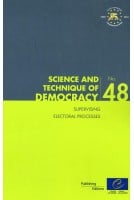
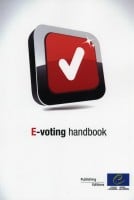

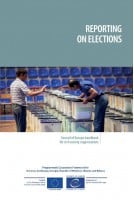


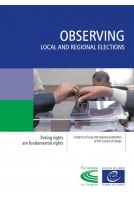




Civil society organisations – watchdogs for free and fair elections!
This handbook, drafted in collaboration with civil society organisations from the countries of the Eastern Partnership, is a response to the recommendation set out in the 2015 report by the Secretary General of the Council of Europe entitled State of democracy, human rights and the rule of law in Europe. Its purpose is to improve the quality of domestic observation of electoral processes in the member states and to serve as a reference for domestic observers, primarily for core team members.
At the same time, it may serve as a training tool for long-term and short-term observers and other electoral stakeholders who wish to familiarise themselves with international election standards (government officials, electoral administration, party representatives, judges, lawyers).
The Council of Europe is convinced that this handbook will further promote the uniform application of Europe’s electoral heritage and of other international standards in its member states and beyond.
Attention, en vertu de nos conditions générales de vente, l'achat des PDF/epub est réservé aux particuliers.
